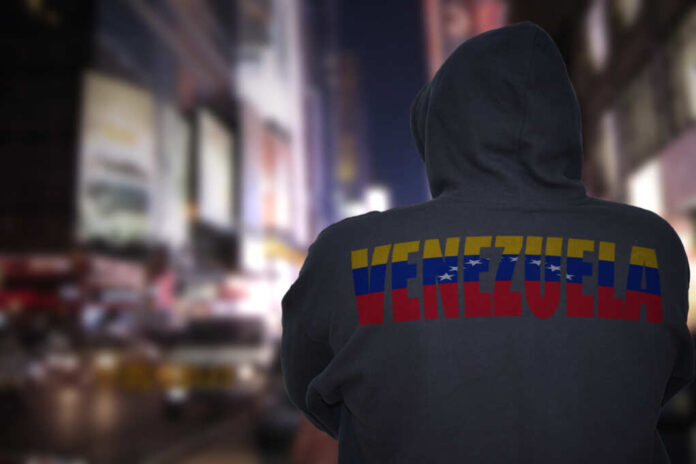
With the eyes of the nation briefly focused on the immigration issue due to the top sound bytes from President Joe Biden’s recent State of the Union Address, a dangerous Venezuelan prison gang is growing in visibility and increasing the concerns of U.S. law enforcement.
According to recent reports in the New York Post, The alleged perpetrator for the murder of Georgia college student Laken Riley is believed to be a former member of the Venezuelan gang Tren de Aragua (TdA). Jose Ibarra, 26, was listed as part of the TdA gang on internal Department of Homeland Security documents seen by The Post.
The NY Post reported that Ibarra was first arrested for illegally crossing into the U.S. in September 2022 at El Paso, Texas. However, he was released on parole after less than 24 hours and allowed to stay in the country with no restrictions until a hearing scheduled for October 2024.
According to Fox News, federal authorities have been warning that TdA is known for its violent turf wars as it expanded into other countries in South and Central America, and is trying to establish itself in the U.S. The FBI has also warned that the gang could team up with the extremely violent Central American street gang MS-13.
Last month two suspects in the assault of two NYPD officers were revealed to be members of TdA.
Fox News reporter Bill Melugin recently posted on X that (a) “CBP source provided an internal CBP intelligence bulletin revealing tattoos/identifiers for Tren De Aragua, the Venezuelan prison gang that has been entering the U.S. illegally through the southern border.”
NEW: CBP source provided an internal CBP intelligence bulletin revealing tattoos/identifiers for Tren De Aragua, the Venezuelan prison gang that has been entering the U.S. illegally through the southern border.
Both CBP source & an ICE source expressed frustration that these… pic.twitter.com/Vnd13Z4y2Q— Bill Melugin (@BillMelugin_) March 7, 2024
Melugin added that according to ICE & CBP data, in fiscal year 2023, there were 335,000 encounters with Venezuelans at the border, but only 834 Venezuelans were deported. Due to strained diplomatic relations between the U.S. and the socialist Venezuelan government led by Nicolas Maduro, Venezuela is currently not accepting any U.S. deportation removal flights.
Venezuela is also part of a controversial parole program for Cubans, Haitians, Nicaraguans and Venezuelans (CHNV) which allows 30,000 migrants with sponsors to fly into the U.S. each month. CBP has repeatedly denied requests by the news media to identify the migrants, or the destination airports utilized by the program.














